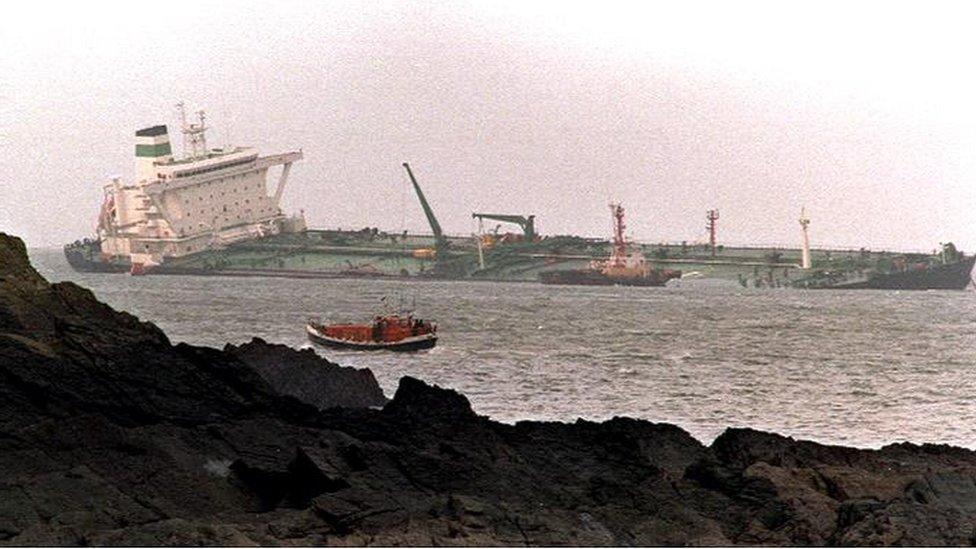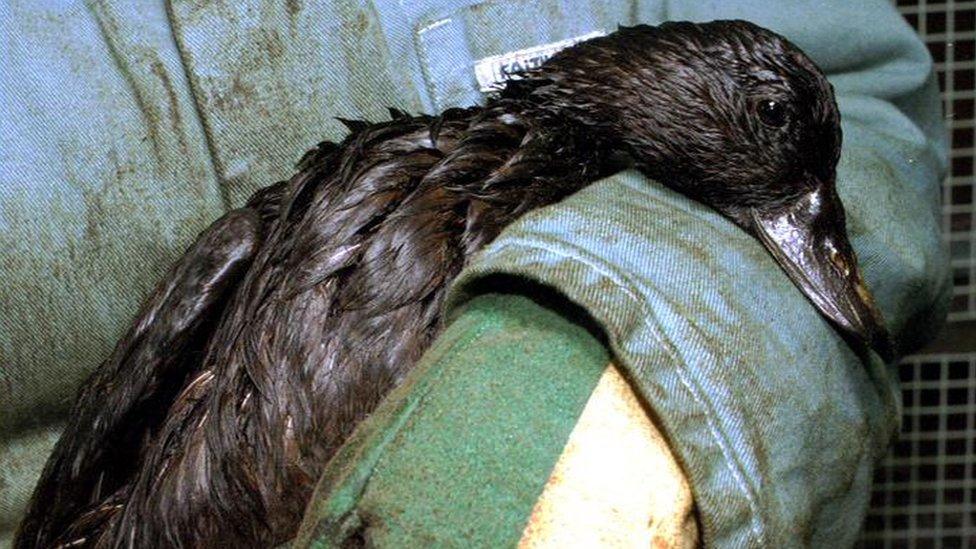Sea Empress oil disaster: Lessons not learned, ex-MP says
- Published

72,000 tonnes of crude oil spilled into the sea when the Sea Empress ran aground in February 1996
The Sea Empress oil disaster off Pembrokeshire could be repeated due to cuts to coastal emergency services, the county's former MP has said.
Thousands of birds died when 72,000 tonnes of crude oil spilled in 1996.
Nick Ainger told BBC Radio Wales the scrapping of the UK's emergency towing vessel fleet showed lessons had not been learned 20 years on.
The Maritime and Coastguard Agency (MCA) said it was felt the shipping industry should fund such a service.
The stranding of the Sea Empress oil tanker at the mouth of the Cleddau Estuary off Milford Haven in February 1996 resulted in 72,000 tonnes of crude North Sea oil escaping into the sea.
Scores of volunteers helped open and run a makeshift animal hospital where more than 7,000 dead or oiled birds were taken - just a fraction of the number affected.

About 120 miles of Welsh coastline were contaminated with the total cost of the clean-up operation put at £60m.
The first two tugs in the UK's emergency towing vessel fleet were introduced in 1994 following the Donaldson report into the MV Braer oil spill.
It was expanded to four in 2000 when a tug at Falmouth, Cornwall, gave cover to south Wales for the first time.
The UK coalition government scrapped the fleet in 2011 as a cost-saving measure, although one tug, in Orkney, won a reprieve until March 2016.
Mr Ainger told the Sunday Supplement programme: "We now have a position, 20 years after the Sea Empress, 23 after the Braer, where we have no emergency towing vehicles stationed around our coast.
"Ironically, other countries in Europe, in Spain, in France, Germany, Norway have got government-financed emergency towing vessels.
"We, with our huge coastline with all the shipping that we have coming not only in and out of Milford Haven, but around our shores from the North Sea carrying crude oil, we haven't got a government-supported emergency towing vessel.
"I think that lesson should be re-learned very, very quickly before we have another disaster."
An MCA spokeswoman said: "The government believes that responsibility for ensuring the operational safety of ships is properly a matter for the commercial shipping industry, working in partnership with the tug and salvage industries; it did not believe that it was appropriate for the taxpayer to fund this provision."
She added that no vessel had run aground or foundered in UK waters, nor had any pollution occurred, as a result of a ship being unable to engage a suitable towing vessel.